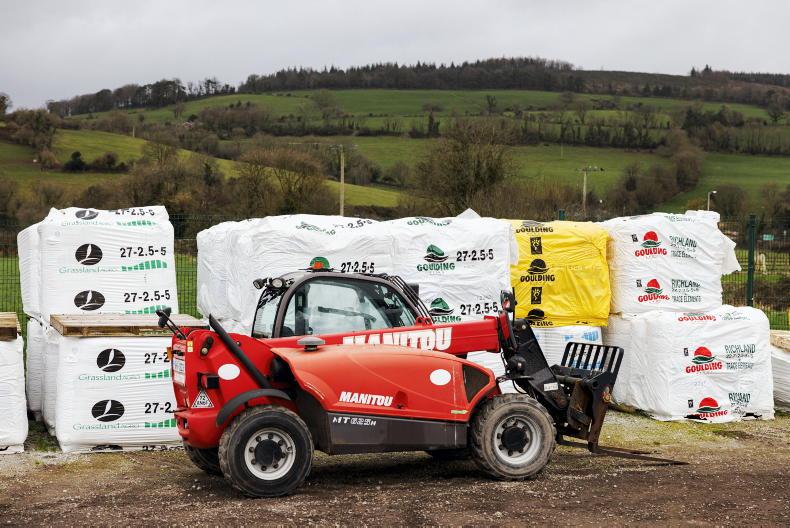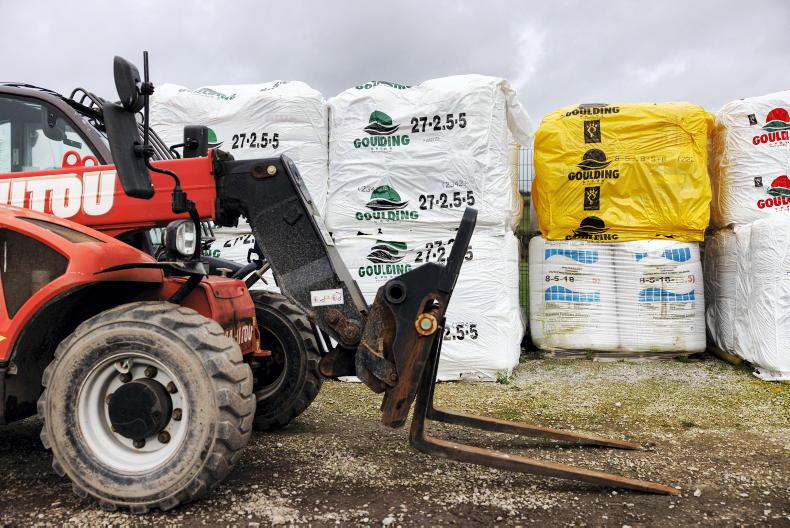Global fertiliser prices have continued to slide in recent months as the market remains reasonably well supplied and demand is sluggish.
Egyptian granular urea FOB is currently trading at the equivalent of €503/t, down from €765/t in mid-October. Black Sea granular urea FOB traded at the equivalent of €412/t last week, compared to €720/t at the same time last year. Buyers have stepped back from the market, expecting prices to soften further.
Potash demand is down sharply this year and prices continue to fall. Supply is down but not to the extent expected. Analysis suggests that Irish farmers continue to pay a substantial premium above farmers in mainland Europe for urea, which has been borne out by Eurostat data.
Strong import activity
Almost three times more urea was imported into Ireland in the June to October period compared to last year, according to CSO data.
Almost 131,000t were imported at an average of €772/t, which is substantially above current market prices. CAN imports were down 50% in that period, while 27-2.5-5 volumes were on par with last year.
Gas price volatility
Gas price volatility continues to influence production. European natural gas prices increased in late November and early December as cold weather took hold and supply concerns re-emerged.
As a result, European nitrogen production has been unprofitable for over a month now.
One Lithuanian nitrogen producer has announced that it stopped production on 19 December, having restarted in early November. It is anticipated that further European producers will follow suit.
However according to Chris Lawson, head of fertiliser at CRU Group, additional Government aid is expected for the sector in 2023. Lawson expects continued volatility in nitrogen prices over 2023, but the average throughout the year will be lower than that achieved in 2022.









SHARING OPTIONS